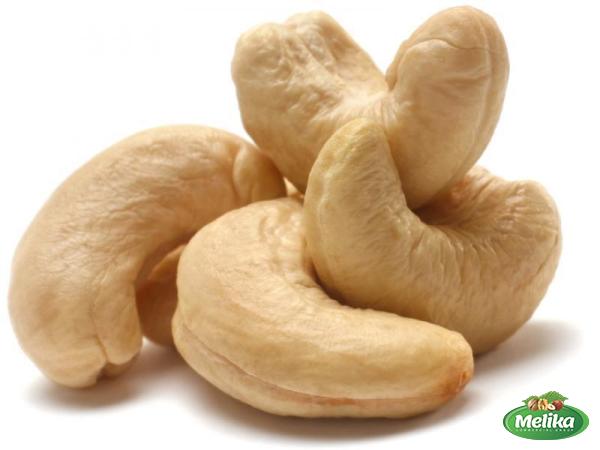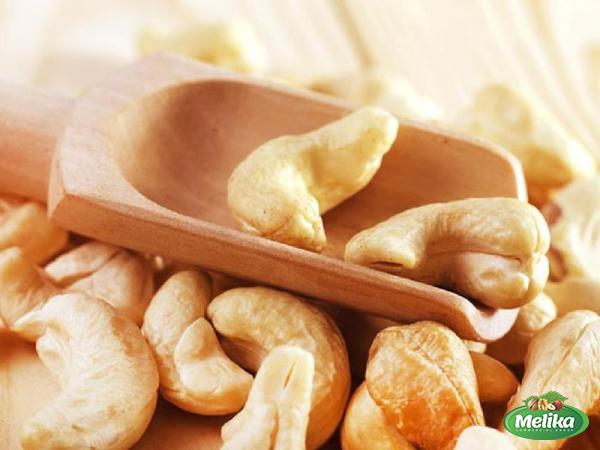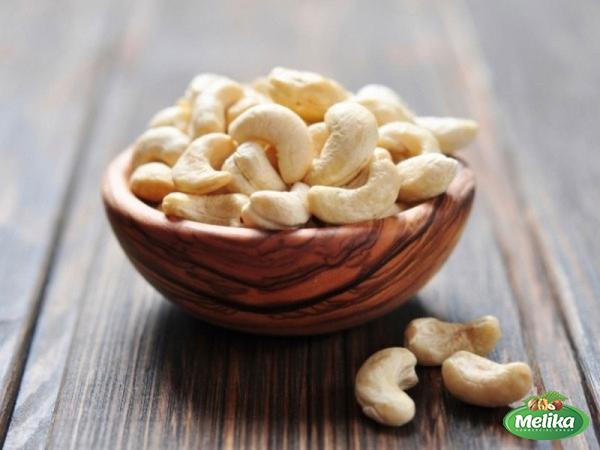Raw cashew nuts are a popular and nutritious food ingredient used in a variety of culinary and snack applications. The market for bulk raw cashew nuts has witnessed significant growth over the years due to their versatility and demand across various industries. In this summary, we will explore the characteristics and benefits of bulk raw cashew nuts, the global market trends, major suppliers and buyers, and potential challenges faced by stakeholders. Characteristics and Benefits of Bulk Raw Cashew Nuts: Bulk raw cashew nuts, scientifically known as Anacardium occidentale, are the seeds of the cashew tree and are typically harvested from tropical countries, including India, Vietnam, Nigeria, Brazil, and Ivory Coast, among others. They are rich in essential nutrients such as proteins, healthy fats, vitamins, and minerals, making them a valuable addition to a balanced diet. One of the key characteristics of raw cashew nuts is their versatility in culinary applications. They can be consumed as a standalone snack, used in cooking, added to salads, used as a topping for desserts, or processed into cashew butter, milk, and even vegan cheese alternatives. Their creamy texture and delicate flavor make them a favorite among consumers. Health-conscious individuals appreciate the nutritional benefits of raw cashew nuts. They are a good source of plant-based protein and contain unsaturated fats, which are known to have a positive impact on heart health. Additionally, they are rich in vitamins, including vitamin E, and minerals, such as zinc, magnesium, and phosphorus, which play a vital role in supporting overall well-being. Global Market Trends: The global demand for cashew nuts, including bulk raw cashew nuts, has experienced significant growth in recent years. The rise in consumer awareness about healthy snacking options, increased adoption of vegetarian and vegan diets, and the diverse applications of cashew nuts in the culinary industry have contributed to this growth. Asia continues to dominate the bulk raw cashew nuts market, with India and Vietnam being the largest producers and exporters. The favorable climate and suitable agricultural practices have made these countries the major hubs for cashew nut cultivation and processing. Additionally, Africa, with major producers such as Nigeria, Ivory Coast, and Tanzania, has emerged as a key player in the raw cashew nut market, supplying a considerable portion of the global demand. The United States, European Union countries, Middle Eastern nations, and China are the primary importers of bulk raw cashew nuts. These regions import significant quantities of raw cashew nuts and either process them locally or use them for various culinary purposes. Major Suppliers and Buyers: India, with its favorable climate, skilled labor force, and advanced processing infrastructure, has become the largest exporter of bulk raw cashew nuts. The country’s trade associations and government initiatives have played a crucial role in establishing India as a reliable supplier in the global market. Vietnam, known for its competitive pricing and expanding processing capacities, is the second-largest exporter globally. Several African countries, including Nigeria, Ivory Coast, Tanzania, and Benin, explore their potential in the cashew industry.

nuts
 These countries are major suppliers of bulk raw cashew nuts and are continuously increasing their production capacities to meet the growing demand. The United States, being one of the largest importers of cashew nuts, relies on various suppliers across the world to fulfill its demand. European Union countries import bulk raw cashew nuts primarily for processing and value addition, while the Middle Eastern nations, such as the United Arab Emirates and Saudi Arabia, import significant quantities for direct consumption and culinary applications. China’s growing middle-class population and its changing dietary preferences have led to an increased demand for cashew nuts, making it a significant buyer in the market. Challenges Faced by Stakeholders: Despite the growth prospects in the bulk raw cashew nuts market, stakeholders face several challenges. One significant challenge is the fluctuation of cashew nut prices due to factors like weather conditions, supply and demand imbalances, and currency fluctuations. Price volatility can impact the profitability of growers, processors, and traders. Quality control and ensuring food safety are also crucial challenges faced by stakeholders. Raw cashew nuts need proper drying and storage facilities to maintain their quality and prevent the growth of molds or aflatoxin contamination. Implementing stringent quality control measures, along with adherence to international food safety standards, is essential for maintaining competitiveness in the global market. Another challenge is the increasing competition among major suppliers. As more countries invest in cashew nut cultivation and processing, the market becomes more competitive, leading to pricing pressures and the need for continuous innovation and differentiation. Additionally, sustainable cultivation practices, ethical sourcing, and fair trade initiatives are gaining importance in the cashew nut industry. Consumers and buyers are increasingly demanding transparency and responsible sourcing practices, which poses a challenge for stakeholders to adopt sustainable and socially responsible approaches to production. Conclusion: The bulk raw cashew nuts market is witnessing significant growth due to the increasing demand for healthy, versatile, and plant-based food ingredients. As the market expands, countries like India, Vietnam, Nigeria, and Ivory Coast remain major suppliers, meeting the demand from key importers such as the United States, European Union countries, Middle Eastern nations, and China. While the market presents immense opportunities, stakeholders must navigate challenges such as price volatility, quality control, competition, and sustainability. By addressing these challenges and focusing on innovation, quality, and ethical sourcing practices, stakeholders can harness the potential of the bulk raw cashew nuts market and capitalize on the growing consumer demand for this versatile and nutritious ingredient.The Growing Demand for Bulk Raw Cashew Nuts: Exploring Opportunities and Challenges In recent years, there has been a significant increase in the demand for bulk raw cashew nuts, driven by changing consumer preferences and the rising popularity of healthy and plant-based food ingredients. This article will delve deeper into the opportunities and challenges that stakeholders in the cashew nut industry face. By understanding these dynamics, businesses can make informed decisions to optimize their operations and tap into this growing market.
These countries are major suppliers of bulk raw cashew nuts and are continuously increasing their production capacities to meet the growing demand. The United States, being one of the largest importers of cashew nuts, relies on various suppliers across the world to fulfill its demand. European Union countries import bulk raw cashew nuts primarily for processing and value addition, while the Middle Eastern nations, such as the United Arab Emirates and Saudi Arabia, import significant quantities for direct consumption and culinary applications. China’s growing middle-class population and its changing dietary preferences have led to an increased demand for cashew nuts, making it a significant buyer in the market. Challenges Faced by Stakeholders: Despite the growth prospects in the bulk raw cashew nuts market, stakeholders face several challenges. One significant challenge is the fluctuation of cashew nut prices due to factors like weather conditions, supply and demand imbalances, and currency fluctuations. Price volatility can impact the profitability of growers, processors, and traders. Quality control and ensuring food safety are also crucial challenges faced by stakeholders. Raw cashew nuts need proper drying and storage facilities to maintain their quality and prevent the growth of molds or aflatoxin contamination. Implementing stringent quality control measures, along with adherence to international food safety standards, is essential for maintaining competitiveness in the global market. Another challenge is the increasing competition among major suppliers. As more countries invest in cashew nut cultivation and processing, the market becomes more competitive, leading to pricing pressures and the need for continuous innovation and differentiation. Additionally, sustainable cultivation practices, ethical sourcing, and fair trade initiatives are gaining importance in the cashew nut industry. Consumers and buyers are increasingly demanding transparency and responsible sourcing practices, which poses a challenge for stakeholders to adopt sustainable and socially responsible approaches to production. Conclusion: The bulk raw cashew nuts market is witnessing significant growth due to the increasing demand for healthy, versatile, and plant-based food ingredients. As the market expands, countries like India, Vietnam, Nigeria, and Ivory Coast remain major suppliers, meeting the demand from key importers such as the United States, European Union countries, Middle Eastern nations, and China. While the market presents immense opportunities, stakeholders must navigate challenges such as price volatility, quality control, competition, and sustainability. By addressing these challenges and focusing on innovation, quality, and ethical sourcing practices, stakeholders can harness the potential of the bulk raw cashew nuts market and capitalize on the growing consumer demand for this versatile and nutritious ingredient.The Growing Demand for Bulk Raw Cashew Nuts: Exploring Opportunities and Challenges In recent years, there has been a significant increase in the demand for bulk raw cashew nuts, driven by changing consumer preferences and the rising popularity of healthy and plant-based food ingredients. This article will delve deeper into the opportunities and challenges that stakeholders in the cashew nut industry face. By understanding these dynamics, businesses can make informed decisions to optimize their operations and tap into this growing market.
Specifications of nuts
 1. Changing Consumer Preferences: The demand for bulk raw cashew nuts has witnessed a surge due to the shift towards healthier snacking options and the growing adoption of vegetarian and vegan diets. Consumers are actively seeking out nutritious and plant-based alternatives, and raw cashew nuts, with their high protein content and essential nutrients, have emerged as a popular choice. 2. Diverse Culinary Applications: Raw cashew nuts offer incredible versatility in the culinary world. They can be used in a variety of ways, including snacking, cooking, baking, and even plant-based alternatives such as cashew butter and milk. Their creamy texture and mild flavor make them an ideal ingredient in both savory and sweet dishes, further driving their demand. 3. Health Benefits: Aside from their culinary versatility, bulk raw cashew nuts are highly valued for their nutritional benefits. They are an excellent source of plant-based protein, healthy fats, vitamins, and minerals. Cashew nuts are also rich in antioxidants and have been associated with various health benefits, including heart health, improved digestion, and weight management. 4. Global Market Trends: The bulk raw cashew nuts market is primarily dominated by Asian countries, with India and Vietnam being the largest producers and exporters. These countries benefit from favorable climates for cashew nut cultivation and have established advanced processing infrastructures. Additionally, Africa is emerging as a key player, with countries such as Nigeria, Ivory Coast, and Tanzania increasing their production capacities and becoming major suppliers. 5. Major Suppliers: India stands as the leading exporter of bulk raw cashew nuts, primarily due to its robust processing infrastructure and skilled labor force. The country’s trade associations and government initiatives have played a pivotal role in establishing India as a reliable supplier. Vietnam, on the other hand, is known for its competitive pricing and expanding processing capacities, making it the second-largest exporter globally. 6. Major Buyers: The United States, European Union countries, Middle Eastern nations, and China are the primary importers of bulk raw cashew nuts. These regions import significant quantities of cashew nuts for various purposes.
1. Changing Consumer Preferences: The demand for bulk raw cashew nuts has witnessed a surge due to the shift towards healthier snacking options and the growing adoption of vegetarian and vegan diets. Consumers are actively seeking out nutritious and plant-based alternatives, and raw cashew nuts, with their high protein content and essential nutrients, have emerged as a popular choice. 2. Diverse Culinary Applications: Raw cashew nuts offer incredible versatility in the culinary world. They can be used in a variety of ways, including snacking, cooking, baking, and even plant-based alternatives such as cashew butter and milk. Their creamy texture and mild flavor make them an ideal ingredient in both savory and sweet dishes, further driving their demand. 3. Health Benefits: Aside from their culinary versatility, bulk raw cashew nuts are highly valued for their nutritional benefits. They are an excellent source of plant-based protein, healthy fats, vitamins, and minerals. Cashew nuts are also rich in antioxidants and have been associated with various health benefits, including heart health, improved digestion, and weight management. 4. Global Market Trends: The bulk raw cashew nuts market is primarily dominated by Asian countries, with India and Vietnam being the largest producers and exporters. These countries benefit from favorable climates for cashew nut cultivation and have established advanced processing infrastructures. Additionally, Africa is emerging as a key player, with countries such as Nigeria, Ivory Coast, and Tanzania increasing their production capacities and becoming major suppliers. 5. Major Suppliers: India stands as the leading exporter of bulk raw cashew nuts, primarily due to its robust processing infrastructure and skilled labor force. The country’s trade associations and government initiatives have played a pivotal role in establishing India as a reliable supplier. Vietnam, on the other hand, is known for its competitive pricing and expanding processing capacities, making it the second-largest exporter globally. 6. Major Buyers: The United States, European Union countries, Middle Eastern nations, and China are the primary importers of bulk raw cashew nuts. These regions import significant quantities of cashew nuts for various purposes.
buy nuts
 The United States relies on a diverse range of suppliers to meet its demand, while European Union countries import primarily for processing and value-added applications. Middle Eastern nations and China import cashew nuts for direct consumption and culinary purposes. 7. Price Volatility: One of the significant challenges faced by stakeholders in the cashew nut industry is the fluctuation in cashew nut prices. Several factors contribute to this volatility, including weather conditions, supply and demand imbalances, and currency fluctuations. Price fluctuations can impact the profitability of growers, processors, and traders, emphasizing the need for effective risk management strategies. 8. Quality Control and Food Safety: Maintaining high-quality standards and ensuring food safety are vital considerations in the bulk raw cashew nuts market. Proper drying and storage facilities are essential to preserving the quality of raw cashew nuts and avoiding issues such as mold growth or aflatoxin contamination. Implementing stringent quality control measures and adhering to international food safety standards are crucial for maintaining a competitive edge. 9. Increasing Competition: As the demand for bulk raw cashew nuts continues to rise, competition among major suppliers is intensifying. More countries are investing in cashew nut cultivation and processing, resulting in pricing pressures and the need for continuous innovation and differentiation. Stakeholders must stay updated with market trends and consumer preferences to stand out in this competitive landscape. 10. Sustainability and Ethical Sourcing: In recent years, sustainable cultivation practices and ethical sourcing have gained prominence in the cashew nut industry. Consumers and buyers are increasingly conscious of the environmental and social impact of their food choices. They demand transparency, responsible sourcing practices, and fair trade initiatives. Businesses in the bulk raw cashew nuts market need to consider these factors and adopt sustainable practices to meet customer expectations. In conclusion, the bulk raw cashew nuts market presents significant opportunities for stakeholders, driven by changing consumer preferences, culinary versatility, and inherent health benefits. However, businesses must navigate challenges such as price volatility, quality control, increasing competition, and the demand for sustainability and ethical sourcing. By addressing these challenges and leveraging market trends, stakeholders can tap into the growing demand and maximize their potential in the bulk raw cashew nuts market.
The United States relies on a diverse range of suppliers to meet its demand, while European Union countries import primarily for processing and value-added applications. Middle Eastern nations and China import cashew nuts for direct consumption and culinary purposes. 7. Price Volatility: One of the significant challenges faced by stakeholders in the cashew nut industry is the fluctuation in cashew nut prices. Several factors contribute to this volatility, including weather conditions, supply and demand imbalances, and currency fluctuations. Price fluctuations can impact the profitability of growers, processors, and traders, emphasizing the need for effective risk management strategies. 8. Quality Control and Food Safety: Maintaining high-quality standards and ensuring food safety are vital considerations in the bulk raw cashew nuts market. Proper drying and storage facilities are essential to preserving the quality of raw cashew nuts and avoiding issues such as mold growth or aflatoxin contamination. Implementing stringent quality control measures and adhering to international food safety standards are crucial for maintaining a competitive edge. 9. Increasing Competition: As the demand for bulk raw cashew nuts continues to rise, competition among major suppliers is intensifying. More countries are investing in cashew nut cultivation and processing, resulting in pricing pressures and the need for continuous innovation and differentiation. Stakeholders must stay updated with market trends and consumer preferences to stand out in this competitive landscape. 10. Sustainability and Ethical Sourcing: In recent years, sustainable cultivation practices and ethical sourcing have gained prominence in the cashew nut industry. Consumers and buyers are increasingly conscious of the environmental and social impact of their food choices. They demand transparency, responsible sourcing practices, and fair trade initiatives. Businesses in the bulk raw cashew nuts market need to consider these factors and adopt sustainable practices to meet customer expectations. In conclusion, the bulk raw cashew nuts market presents significant opportunities for stakeholders, driven by changing consumer preferences, culinary versatility, and inherent health benefits. However, businesses must navigate challenges such as price volatility, quality control, increasing competition, and the demand for sustainability and ethical sourcing. By addressing these challenges and leveraging market trends, stakeholders can tap into the growing demand and maximize their potential in the bulk raw cashew nuts market.











Your comment submitted.